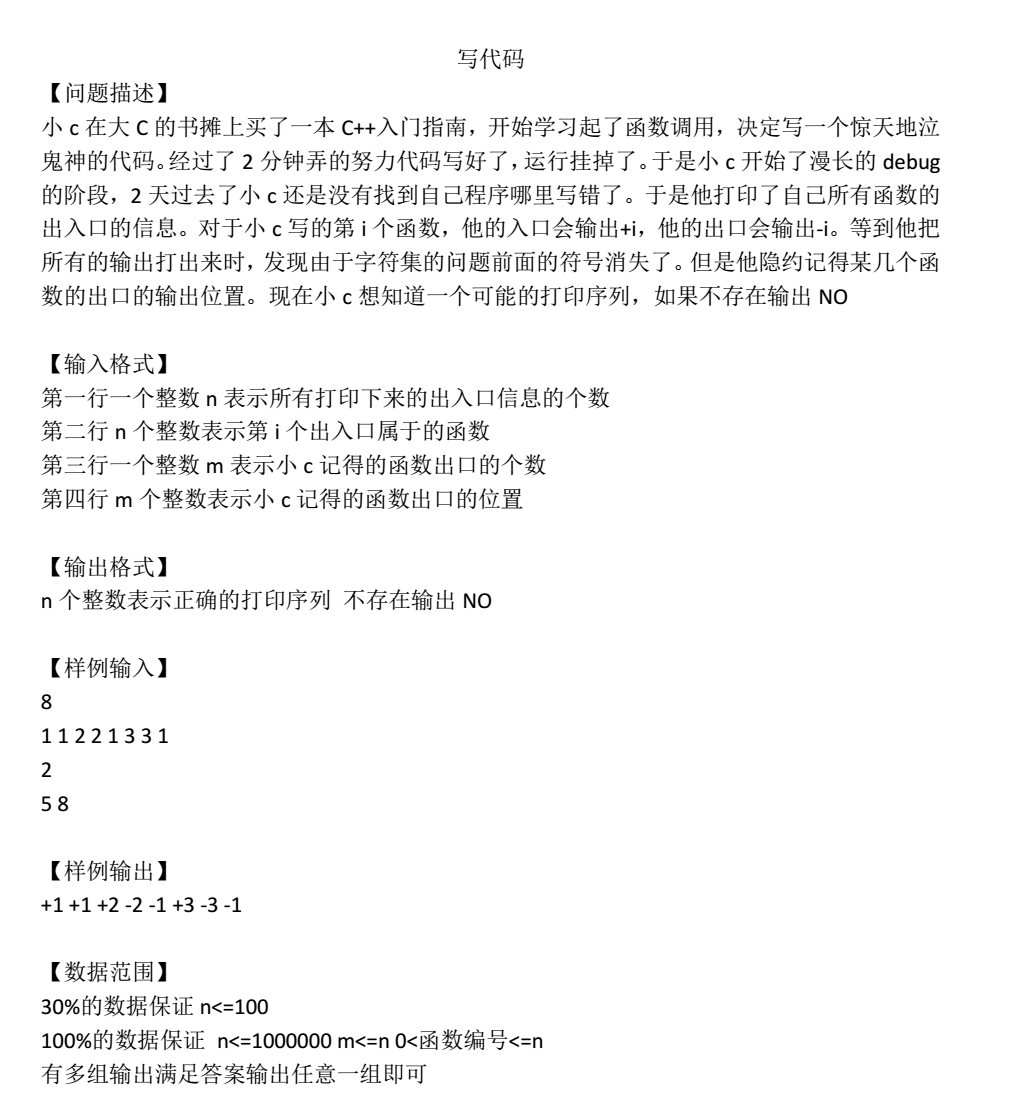
分析:这其实就是括号匹配题,一眼贪心题,不过一开始贪错了,以为([)]是合法的......其实括号之间不能嵌套.
一开始的想法是尽量往左边填左括号,因为每种括号的数量都确定了,那么左括号和右括号的数量也就确定了,但是这样会有一个问题:1 1 1 2 3 1 1 3 2 1,最后两个1被指定为右括号,这样的贪心会使它嵌套.正着贪心似乎很难,沿用之前模拟赛的思路,倒着贪心:从已知推向未知.
题目中告诉了右括号的位置,从后往前枚举,为了尽可能地防止嵌套,在右边如果能放左括号就尽量放左括号,不行就放右括号,最后判断一下能不能合法就可以了.
#include <cstdio> #include <cstring> #include <iostream> #include <algorithm> using namespace std; int n, m, a[1000010], cnt[1000010], pos[1000010],p[1000010], ans[1000010], tot[1000010]; int main() { scanf("%d", &n); for (int i = 1; i <= n; i++) { scanf("%d", &a[i]); cnt[a[i]]++; } for (int i = 1; i <= n; i++) if (cnt[i] % 2 != 0) { printf("NO "); return 0; } scanf("%d", &m); for (int i = 1; i <= m; i++) { int t; scanf("%d", &t); pos[t] = 1; } for (int i = n; i >= 1; i--) { if (pos[i] == 1) { tot[a[i]]++; ans[i] = 2; p[a[i]]--; } else { if (tot[a[i]] >= 1) { tot[a[i]]--; ans[i] = 1; p[a[i]]++; } else { tot[a[i]]++; ans[i] = 2; p[a[i]]--; } } } for (int i = 1; i <= n; i++) if (p[i] != 0) { printf("NO "); return 0; } for (int i = 1; i <= n; i++) { if (ans[i] == 1) printf("+%d ", a[i]); else printf("-%d ", a[i]); } return 0; }